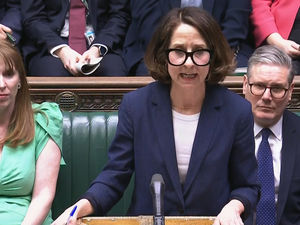Avoiding tax – with an ISA, says Nigel Hastilow
Yes, I have invested money in a tax avoidance scheme. Don’t blame me, it’s not my fault, I was advised to do it.
The cash has been put into stocks and shares and all the dividends and interest come back to me – tax free.
It’s an amazing wheeze which has attracted the interest of thousands, if not millions, of investors.
Are we rich? Are we fat cats sitting on our yachts in the Mediterranean soaking up the sun while the poor working man slaves away paying his income and National Insurance taxes to a grateful Treasury?
No, we are not. We are toilers in the vineyard who have been advised to set a little money aside for a rainy day by making regular savings into a legal tax avoidance scheme.
This little scam is called an Individual Savings Account, or ISA, and it was set up by the our very own Government.
That was in the days when avoidance of tax was considered a reasonable thing to do. So reasonable, indeed, there are several different ISAs and both Labour and Conservative Chancellors have done their best to encourage us to invest in them.
Before we get too exercised about the latest ‘revelations’ in the ‘Paradise Papers’, it’s worth bearing in mind that minimising your tax bill by legal means is not merely acceptable, it’s positively encouraged by politicians.
We should also remember that offshore tax havens have been around for many years. This week’s tax scandal is only in the headlines because somebody stole a law firm’s private documents about its clients and broadcast them to the world.
Some of the facts are embarrassing for the individuals involved. Motor racing ace Lewis Hamilton’s success in avoiding a huge VAT bill on his Bombardier Challenger 605 jet aircraft, thanks to the accommodating authorities in the Isle of Man, does not cover him in glory.
The sanctimonious Paul Hewson, better known as U2 front-man Bono, is apparently distressed to learn some of his millions are invested in a Guernsey-based business that owns a shopping centre in Lithuania and may not be paying tax on its earnings.
There is some satisfaction in discovering the man who travels the world demanding Governments use taxpayers’ money to help the poor is minimising his own tax bill.
The Queen has also come in for a bit of stick over the news that, in 2004 and 2005, her financial managers moved £10 million offshore to the Cayman Islands and Bermuda.
The righteous Jeremy Corbyn thinks she should apologise.
But, like Hamilton, Bono and others such as three stars of Mrs Brown’s Boys, Her Majesty’s advisers have not been acting illegally. That’s because – believe it or not – there is a huge difference between tax evasion and tax avoidance.
Evasion is illegal; avoidance is not. Evasion is a crime which can be severely punished. Avoidance is not only legitimate but, sometimes, positively encouraged by our Government.
There is a grey area, of course. Some clever lawyers devise ever-more-complex methods of reducing their clients’ tax bills while remaining – just – within the law.
The taxman, HMRC, devotes time and energy to untangling these schemes and winning court cases which declare them to be illegal after all.
One example, which has caught out dozens of rich celebrities including Sir Alex Ferguson, Sven Göran Eriksson and Glenn Hoddle, was a supposedly legitimate way of reducing their tax bills by investing in the film industry.
Even that scheme, though, was set up by the Government to boost investment in British films.
It’s not always a simple case of the rich getting richer on the backs of the poor, though sometimes it does look like that.
Take Apple, the world’s biggest and most successful company. It would rather have £190 billion stashed away in a Jersey bank account than pay tax on all that loot.
There is something very wrong with that but it never ceases to amaze me how popular Apple and its products are despite their built-in obsolescence and monopolistic instincts.
Let’s not forget, though, that politicians have known for decades that offshore islands, many of them British colonies, have been used as tax havens for the rich and powerful.
The blame for tax avoidance rests with our Government, not with individuals or corporations. If successive Chancellors had really wanted to crack down on the way money flows out of the country, they could have legislated to stop it.
One option – probably the best but also the least likely to be adopted – would be to cut British taxes and make the whole system much easier to navigate.
Tax is a necessary evil but nobody willingly pays more than the law requires. If taxes were lower and simpler, the Government could put the whole avoidance industry out of business.
It would quickly turn the Isle of Man back into a chilly kiss-me-quick rock in the middle of the Irish Sea – but that would be a small price to pay.



